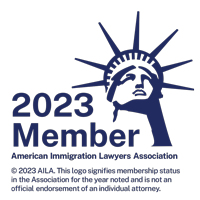A new and final ruling by the Department of Homeland Security’s U.S. Citizenship and Immigration Services (USCIS) increased the number of people who can receive a provisional waiver of unlawful presence and will also make it easier for individuals to navigate the immigration process.
This new process will also reduce the time that newly eligible individuals are separated from their families as they complete the immigration process outside of the United States.
The new ruling took effect on Aug. 29, 2016, and both builds on a process established in 2013 and expands the group of people who are eligible for a provisional waiver of unlawful presence to anyone who is statutorily eligible for a waiver of the unlawful presence ground of inadmissibility.
How Does the New Ruling Expand Eligibility?
The previous ruling on provisional waivers was established in 2013. The new ruling makes a few important changes to expand eligibility, such as:
Expanding eligibility to anyone who is statutorily eligible
Under the 2013 ruling, waivers could only be granted to individuals who were immigrating to the United States and were married to U.S. citizens, children of U.S. citizens, parents of adult U.S. citizens, and could demonstrate extreme hardship to their immediate relatives in the event of their absence.
The 2016 ruling expands the eligibility to anyone who is statutorily eligible regardless of immigrant visa application. That includes criteria such as employment-based preference category, family-based preference category, diversity visa lottery, and special immigrant classification.
Eliminating cut-off dates
Previously, anyone whose immigrant visa interviews were scheduled prior to Jan. 3, 2013 by the Department of State were automatically ruled ineligible for a provisional unlawful presence waiver. This ineligibility applied even to individuals whose interviews were never occurred due to absence, were canceled, or were rescheduled.
The 2016 ruling eliminated this cutoff date and now individuals can receive waivers regardless of the originally scheduled dates of their immigrant visa interviews.
Expanding eligibility for individuals with final orders of removal
The 2013 ruling established that individuals with final orders of removal, deportation, or exclusion were ineligible to receive provisional waivers.
The 2016 ruling allows these individuals to apply for provisional waivers if they complete and file a Form I-212, Application for Permission to Reapply for Admission into the United States After Deportation or Removal, and the application is then conditionally approved.
Beginning Aug. 29, 2016, individuals can apply for a provisional unlawful presence waiver by downloading Form I-601A from the USCIS website and following the provided instructions.

